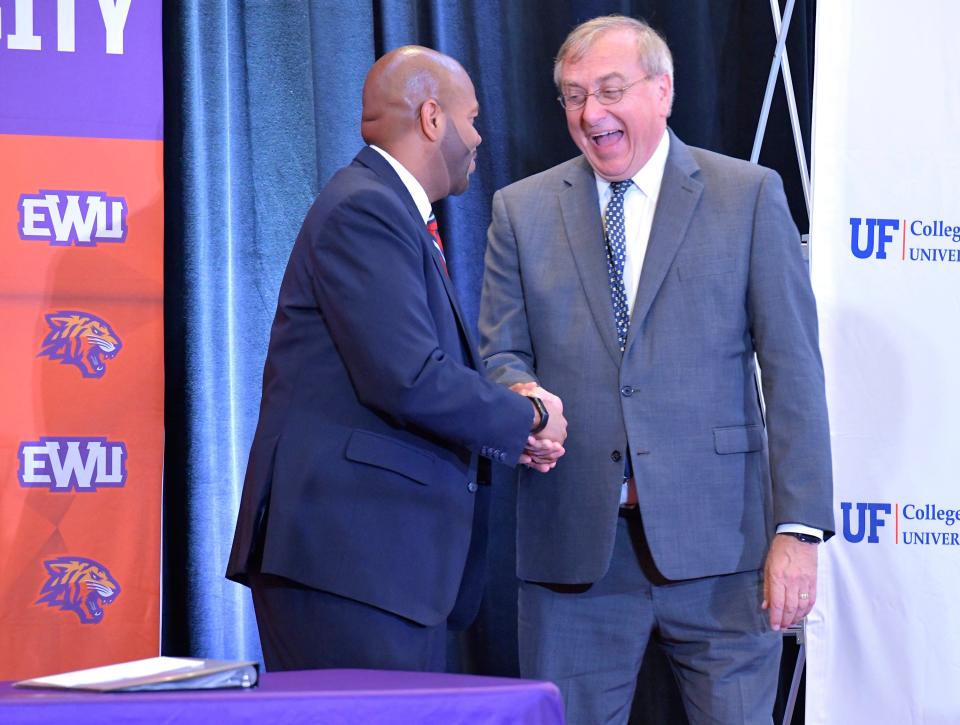Edward Waters University, UF agree on path for grads to earn accelerated nursing degrees

Edward Waters University students will have a possibility of earning nursing degrees from the University of Florida under an agreement between the schools cultivating a new source of in-demand nurses.
Although limited to only five students per year, the deal finalized Wednesday opens a potentially significant relationship between the state university’s highly ranked nursing college and the private, historically Black university in Jacksonville.
The agreement "will equally benefit both universities and our community," said Edward Waters President and CEO A. Zachary Faison Jr., who recounted talking about the partnership three years ago with the late UF Health Jacksonville CEO Leon L. Hailey Jr., an early champion.
“Through this shared effort, we will help to improve health care through addressing a critical need for more Black nurses,” UF President Kent Fuchs said.
The arrangement also reinforces recent advances by Edward Waters, which less than 20 years ago had its accreditation revoked and went to court to regain the approval that was needed for students to seek federal financial aid.
The school, known for generations as Edward Waters College, last year became a university accredited to offer master’s degrees, its undergraduate credentialing locked in until 2025.

The new partnership allows up to five Edward Waters students to enter the UF College of Nursing’s accelerated bachelor’s in nursing program, designed for people who already hold bachelor’s degrees in other fields to earn nursing degrees.
Edward Waters doesn’t have a nursing major, but students with biological sciences majors could take prerequisite courses at the school on Kings Road and nursing coursework at UF's clinical teaching site at the nearby UF Health Jacksonville hospital campus.
The potential for studying nursing is exciting, said Te'Zarria Richardson, a freshman Edward Waters biology major who said she's drawn to finding a way to help people.
The arrangement is the first between UF’s nursing college and an HBCU.
Increasing the number of Black nursing students has emerged as a growing priority as the number of people needed in nursing roles has risen.
A national survey in 2020 found that 6.7 percent of registered nurses were Black, while the U.S. Census concluded that Blacks accounted for 12.4 percent of the country’s population that year.
A need to tap into new nursing students was underscored by the same survey reporting the median age of registered nurses was 52, suggesting many people in those roles now will reach retirement age over the coming years.
Faison Jr. said his school was “tremendously excited to enter this historic and incredibly impactful partnership.
“We believe that this first-of-its-kind focused academic and health-related collaborative initiative between EWU and UF will operate to positively address our state's growing need for more nursing and health care professionals overall,” Faison said.
This article originally appeared on Florida Times-Union: Deal to let Edward Waters grads pursue UF nursing degrees

 money
money 